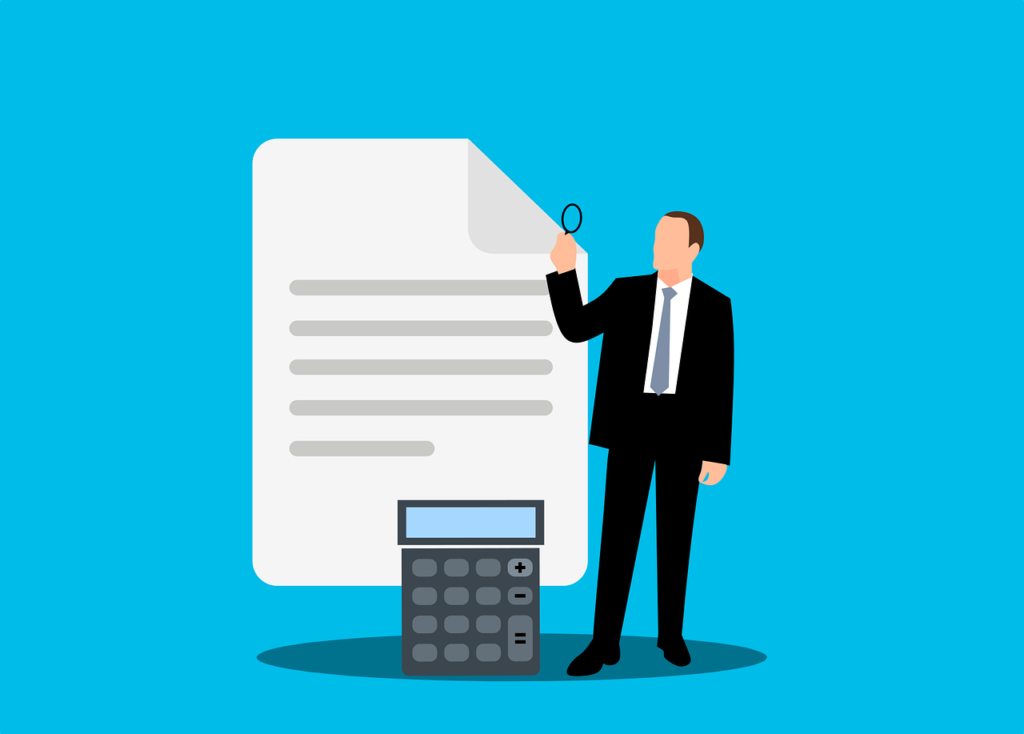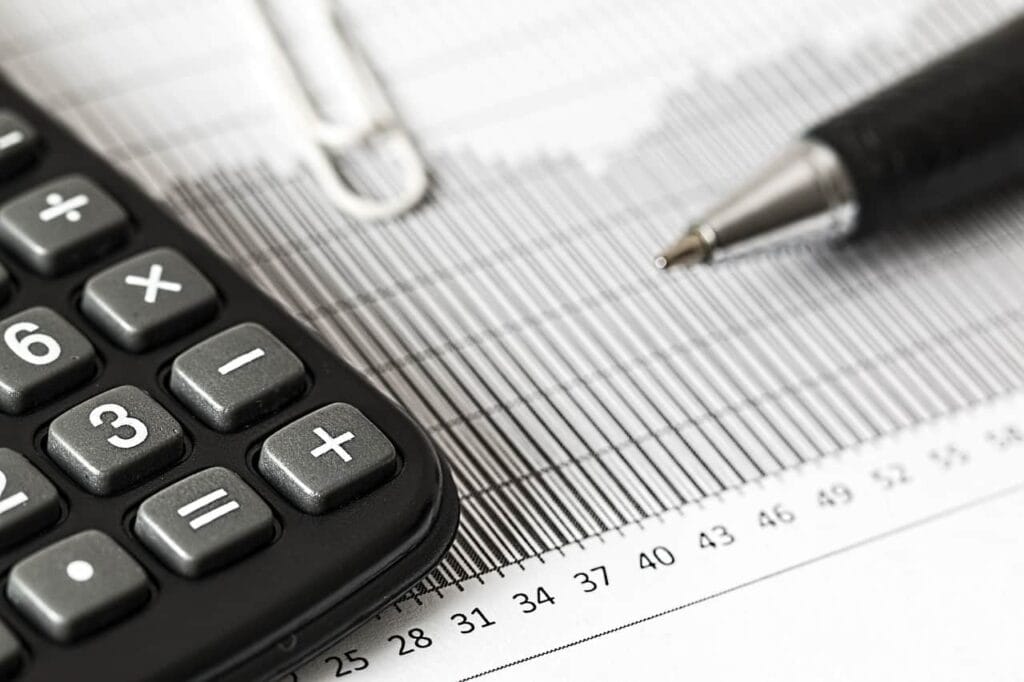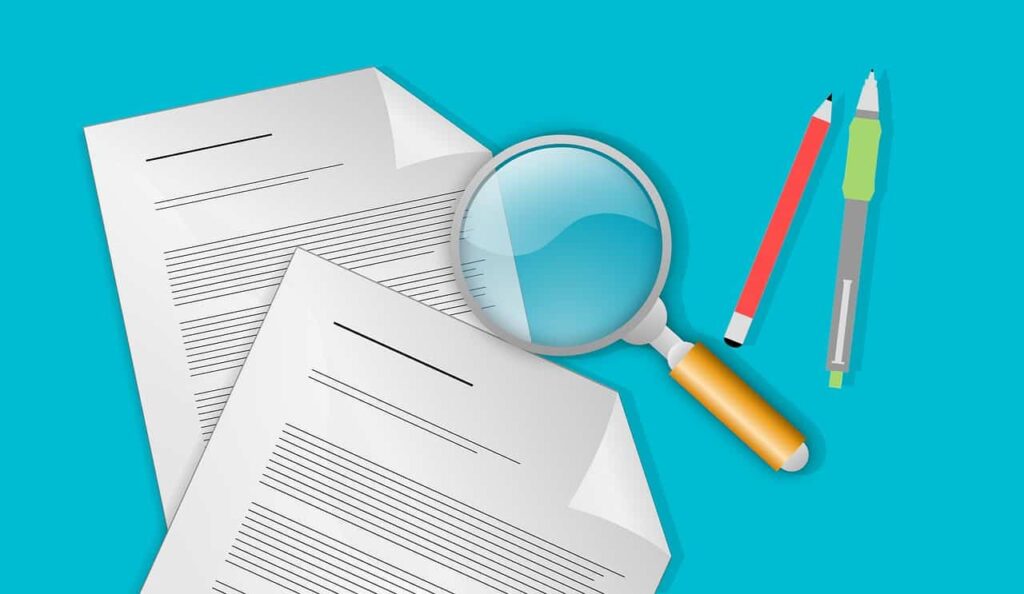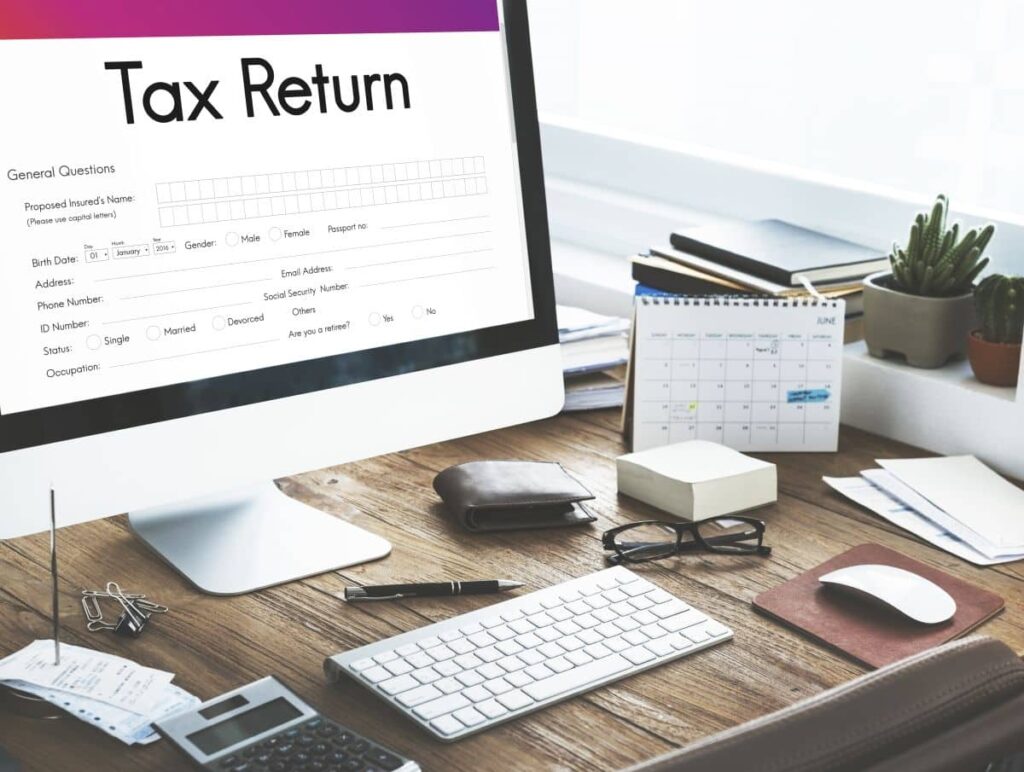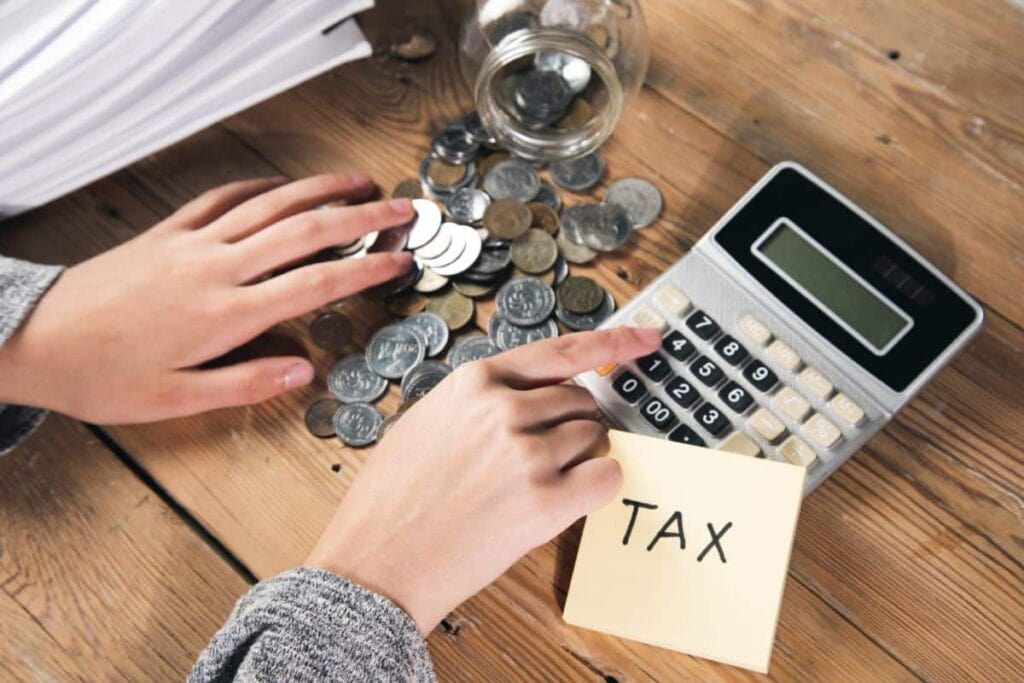Do I Need to Lodge a Tax Return?
Now that tax season has arrived once more, a lot of people are wondering whether or not they have to file a tax return. Here are three questions that can help you answer the question, “Do I need to file a tax return?” so that you can make an informed decision about whether or not you should file a tax return.
The first question to ask yourself is, “Do I have money coming in?” It is unlikely that you will be required to lodge if the only income you received was from the government in the form of benefits or if your wage was less than $18,200.
The second question that needs to be answered is, “Was the amount of my taxable income more than zero?”
If the question can be answered in the affirmative, then there is a good chance that there are some advantages to lodging. One final question you should ask yourself is this: “Am I anticipating any major shifts in my circumstances over the course of the next year?”
If you are uncertain about whether or not you are required to file a tax return, this article will discuss various issues that may affect your situation.
Before settling on any course of action, it is essential to consult with a financial expert or other qualified professional.
The Australian Taxation Office provides basic criteria for determining whether or not a tax return should be lodged; however, they are merely recommendations, and there are exceptions to every rule in every circumstance.
Imagine that while you were residing in Australia, you were entitled to income from another country, that you generated certain capital gains, that you had big business deductions, or that you made significant contributions to superannuation funds. If such is the case, you will very certainly be required to file a return.
Continue reading for more information about these various circumstances and how they can affect your eligibility to lodge a tax return with the Australian Taxation Office (ATO).
Lodge and pay tax
Every year, your company is required to file a tax return, and there is a possibility that you will also need to file business activity statements more frequently. The type of business structure you have will determine how you file your taxes. Find out how to file your returns and the different ways you can pay your taxes.
1. Check the criteria for filing tax returns that apply to your business
Even if you have a loss to report or if your revenue is below the threshold, you are still required to file an annual tax return for your company. Make sure you are familiar with the regulations that pertain to the structure of your company before you file your return:
- Sole trader – File a return of individual income tax. Include all of the income from your business on your tax return using a separate business schedule. There is no requirement for you to file a separate tax return on behalf of your company.
- Your partnership is required to have its tax file number (TFN), but it is exempt from paying income tax on any profits that it generates. Instead, the revenue from the partnership is reported on the individual tax returns of each participant in the partnership. In addition to that, your partnership is required to file a separate partnership return using its TFN.
- A separate and distinct legal entity is referred to as a company. You are required to file a tax return for the company and pay tax based on the company’s income. If you are a director, you will still be responsible for filing your own individual tax return.
- Trust – A trust has its TFN and must lodge a trust income tax return.
It’s possible that you could qualify for tax breaks if you run a nonprofit organization (also known as an NFP). On the website of the Australian Taxation Office (ATO), you can find an overview of tax incentives that are available to NFP organizations.
2. Gain an understanding of the standards for business activity statements
When you apply for an Australian business number (ABN) and GST, the Australian Taxation Office (ATO) will give you a business activity statement (BAS) at the appropriate time to lodge your tax return.
Your BAS gives you the ability to record and pay for a variety of taxes, including the following:
- tax on products and services (GST)
- luxury car tax
- Tax on wine to ensure parity
- pay as you go (PAYG) withholding
- Pay as you go (PAYG) instalments
- fringe benefits tax (FBT) instalments.
There are various choices available to you when it comes to filing your BAS; however, the vast majority of companies that file their own BAS choose to do it online.
Payroll with a Single Touch
It is possible that you will be forced to utilize Single Touch Payroll (STP) reporting if you have employees or any other payees. The ATO now receives tax and superannuation information via STP, which is a new reporting method.
As you conduct your payroll, the ATO receives the information about your taxes and superannuation that is stored in your payroll or accounting software.
Learn as much as you can about the STP.
3. Find out the deadline by which you need to lodge
Unless you lodge through a registered tax agent, tax returns are due by 31 October for:
- sole traders
- partnerships
- trusts.
The 28th of February is the typical deadline for self-preparers to submit their company returns. When you use the services of a registered tax agent to file your taxes, the agent will let you know when they will submit your return.
There are a variety of due dates for the BAS; they might be monthly or quarterly.
4. Lodge either your tax return or your BAS
You may choose to file your return on your own or hire a professional to file it on your behalf, depending on how complicated both your business and your taxes are.
You can lodge your tax return:
- with a registered tax agent
- online with myTax if you’re a sole trader
- with standard business reporting enabled software if you’re a company, trust or partnership
- by paper.
You can lodge your BAS:
- through a registered tax or BAS agent
- online (online services in myGov, the business portal or SBR-enabled software)
- by phone (for nil BAS statements only)
- by mail.
Make certain that the tax or BAS agent you use is registered with the Tax Practitioners Board before you hire them (TPB). Conduct a search for their name in the TPB registry to see whether or not they are registered.
5. Pay your taxes
The Australian Taxation Office (ATO) provides a variety of self-service tools and online services that can assist you in managing your taxes.
You have the option of paying with either BPAY or a credit or debit card.
Get in touch with the ATO for advice if you’re concerned that you won’t be able to submit your return or make your payment on time. You can obtain information from the ATO that may be of assistance to you in managing your taxes.
Why is it necessary for you to submit a tax return?

You are required to submit a tax return if one or more of the following circumstances applies to you.
Reason 1
You were a resident of Australia during the years 2020–2021, and during that time you:
- paid tax through the Pay-As-You-Go (PAYG) system of withholding or instalments, or
- had tax withheld from payments given to you, or both (excluding mining payments).
Reason 2
You were entitled to the tax offset for seniors and pensioners, and your rebate income (not counting the income of your spouse) was greater than:
- $32,279 if you were single, divorced, or widowed at any point throughout the year.
- $31,279 if you had a spouse, but one of you had to reside in an assisted living facility because of disease, or if you were forced to live apart because of illness (see the definition of Had to live apart due to illness in T1 Seniors and pensioners (includes self-funded retirees) 2021), or
- $28,974 if you lived with your spouse for the full year.
To work out your rebate income, see Rebate income 2021.
Reason 3
You did not qualify for the tax offset for seniors and pensioners, but you did get a payment that was indicated in question 5, and your taxable income (from taxable income or loss on your tax return) was greater than $21,884.
Reason 4
You did not qualify for the tax offset for seniors and pensioners, you did not get a payment that was stated in questions 5 or question 6, and your taxable income was more than the following thresholds:
- $18,200 if you lived in Australia throughout the entire year and were considered a resident for tax purposes there (see the meaning of Australian resident for tax purposes in Special circumstances and glossary)
- $416 if you were under the age of 18 on the 30th of June, 2021, and your income did not come from wages or a salary
- $1 if you were a foreign resident and you had income taxable in Australia which did not have a final non-resident withholding tax withheld from it, or
- if you became or stopped being a resident of Australia for tax purposes, your tax-free threshold amount for the part-year in which you became a resident; see question A2 or call 13 28 61.
Other reasons
If any of the following apply to you, you are required to lodge a tax return:
- You had a reportable fringe benefits amount on your
- Income statement or PAYG payment summary – individual, non-business, or
- Income statement or PAYG payment summary – foreign employment.
- You had reportable employer superannuation contributions on your
- Income statement or PAYG payment summary – individual non-business
- Income statement or PAYG payment summary – foreign employment, or
- Income statement or PAYG payment summary – business and personal services income.
- You were eligible for the rebate for private health insurance, but you did not claim the correct entitlement as a decrease in your premiums, and your spouse, if you had one, is not claiming the refund on their income tax return on your behalf.
- You ran a business all this time.
- You have incurred a loss, which may include either a capital loss or a non-capital loss on the redemption or disposal of traditional security, or you are eligible to claim a loss of this kind that you incurred in a prior year.
- You were at least 60 years old, if not older. You were a non-dependant, therefore, you were eligible to receive a tax-free portion of the superannuation lump sum death benefit that was paid out to you in Australia. You got this benefit in the form of a lump payment.
- You received an Australian superannuation lump sum that includes a taxed element or an untaxed part, or it is a superannuation lump sum death benefit provided to you as a non-dependant. Additionally, you were less than 60 years old when you got the lump amount.
- You were eligible to receive a distribution from a trust, or you held an interest in a partnership, and the trustor partnership was engaged in the operation of a primary producing business.
- You were an Australian resident for tax purposes, you had exempt income from working abroad, and you had at least one dollar in income from other sources.
- You are considered to be a qualified special professional for the purposes of the income averaging regulations. These laws are applicable to writers of works that are literary, dramatic, musical, or artistic, inventors; performing artists; producing associates; and active athletes.
- You received income from dividends or distributions exceeding $18,200 (or $416 if you were under 18 years old on 30 June 2021), and you had
- franking credits attached, or
- amounts withheld because you did not quote your tax file number or Australian business number to the investment body.
- During the time that you were in Australia on a working vacation visa, you received taxable income from Australian sources amounting to $45,001 or more. This does not include any superannuation or job termination remainders (417 or 462 visas).
- You are eligible to receive a super co-contribution for the personal contributions that you have made to a compliant superannuation fund or retirement savings account. These contributions do not include any sums that you are claiming as a deduction.
- The limit on concessional contributions to superannuation that you could make was surpassed by your contributions.
- Your non-concessional contributions surpassed your non-concessional contributions cap.
- You were a liable parent or a recipient parent under a child support assessment unless
- you received one or more Australian Government allowances, pensions or payments for the whole of the period 1 July 2020 to 30 June 2021
- the total of all the following payments was less than $26,319
- taxable income (excluding any assessable First home super saver released amount)
- exempt Australian Government allowances, pensions and payments
- target foreign income
- reportable fringe benefits total
- net financial investment loss
- net rental property loss
- reportable superannuation contributions.
Deceased estate
If you are managing the estate of someone who passed away during the 2020–2021 school year, you are obligated to take all of the aforementioned considerations into account. Please fill out the Non-lodgment advice 2021 form and fax or mail it to us if you are exempt from filing a tax return.
If you are required to file a tax return, you can find further information by viewing the page titled “Completing individual information on your tax return 2021.”
Residents of other countries who have racked up debt via the Higher Education Loan Programme (HELP), the Vocational Education and Training Student Loan (VSL), or the Trade Support Loan (TSL) are eligible for this program.
If you were a foreign resident in Australia for the 2020–21 tax year and had an outstanding HELP, VSL, or TSL debt as of June 1, 2019, you are required to file a tax return if the total of the following amounts:
- your repayment income, and
- any income from a foreign source
was more than $11,655 for 2020–21.
If this is your situation, you are required to file your tax return using an electronic filing system. This is the case regardless of whether or not any of the other reasons listed above apply to you.
Franking credits
Imagine that you have been awarded franking credits; as a result, you are exempt from filing a tax return for the fiscal year 2020–21. If this is the case, you may be qualified to file a claim for a refund of franking credits by filling out the “Refund of franking credits instructions and application for individuals 2021” (NAT 4105) form and submitting your request either online, through the mail, or over the phone by calling 13 28 65.
Non-lodgment advice
If you are confident that you are exempt from filing a tax return and have reviewed all of the material presented above, you should fill out the Non-lodgment advice 2021 and send it to us unless one of the following situations describes your situation:
- You have already communicated to us, either by a tax return, non-lodgment advice, a form, or a letter, that you are exempt from the requirement to file a tax return for all subsequent years.
- You are submitting a request to have franking credits for 2021 refunded to you at this time.
- Your only source of income was one of the allowances or payments indicated in question 5, or you received a pension, one of the payments stated in question 6. Therefore,
- your rebate income was less than or equal to the relevant amount in reason 2 (if you are eligible for the seniors and pensioners tax offset), or
- your taxable income was less than or equal to the relevant amount in reason 3 (the agencies that paid you have provided information for us to determine that you do not need to lodge a tax return)
- You entered Australia on a 417 or 462 working holiday visa, and the amount of money you made in that country was less than $45,001.
Using our online services, you are able to provide advise regarding non-lodgment for the year 2021.
What Consequences Will Result from Your Failure to Submit an Income Tax Return?
If you have a taxable income that is greater than the tax-free threshold, which at this time is set at $18,200, you are required to file a tax return. We can help you decide whether you are needed to lodge, and if you haven’t done so already, it’s not too late to do so even if you haven’t already submitted a tax return. In some cases, you may even be forced to lodge if you earn less than that amount.
Generally speaking, you are required to file a return of income tax each and every year. On the other hand, you might not have gotten around to it for a variety of reasons, such as being too busy, being abroad, or discovering that it was simply too complicated. Therefore, if you haven’t filed your tax return in a few years or if you have one that’s still pending or late, you should get it done as soon as possible for your peace of mind, regardless of the cause.
If you fail to lodge your return, the Australian Taxation Office (ATO) may use a variety of sanctions and penalties to either force you to lodge your return or penalize you for lodging it late.
What if it turns out that I don’t have to lodge a tax return?
It is possible that you will not be obliged to file a tax return if you had earnings of less than $18,200 and did not make any tax payments. Nevertheless, it is imperative that you provide the ATO with non-lodgement advice. This ensures that they will not designate you as having a pending return and explains that you are exempt from the requirement to lodge.
If you do not provide the ATO with guidance regarding your failure to lodge, they may presume you are required to do so and may take compliance action to compel you to do so. Your non-lodgement advise can be prepared and lodged by our team.
What is the penalty for failing to lodge a tax return?
If you fail to submit your tax return by the specified deadline, the Australian Taxation Office (ATO) will charge you a Failure To Lodge (FTL) penalty. This fine can go up to a maximum of five penalty units, and it is computed as follows: one penalty unit is added to the total for each full or partial period of 28 days that the document is late, up to a total of five penalty units. At the moment, the value of a punishment unit is $222, which results in the greatest possible penalty being assessed to an individual being $1,110.
The penalty is typically automatically applied, however, it is not normally applied to returns that either provide no result or create a refund. Exceptions to this rule include returns that have either nil or positive results. In cases where a penalty has been assessed, the ATO may, at its discretion, waive it in situations where it would be “fair and reasonable to do so,” such as in the case of a major sickness or natural disaster.
Is it possible to get in trouble for lodging your tax return late?
The Australian Taxation Office (ATO) has the authority to issue you with one or more default assessments if it has tried to induce you to file a return but has been unsuccessful, particularly if you have not filed for several years. This is an estimate of your income that has been calculated based on information held by the ATO.
Because these are estimates, they are rarely accurate, and because they do not take into account any deductions, they frequently suggest a bigger tax bill than you would actually owe. You’re eligible to dispute a default evaluation. However, you need to be able to demonstrate the real amount of tax liability that you have. It is not sufficient to merely argue that the data provided by the ATO are incorrect.
Will I face legal repercussions if I fail to submit a tax return?
The Australian Taxation Office (ATO) can and will pursue legal action against taxpayers who fail to file their required tax returns. At this time, the greatest amount of money that can be fined or the maximum amount of time that can be served in jail is $9,000.
If I don’t lodge a tax return, would the Internal Revenue Service investigate my finances?
It is a commonly held belief that if you lodge your tax return late, your chances of being reviewed or audited by the ATO will increase.
What actions should I take if I have not yet submitted my tax return?
The Australian Taxation Office (ATO) will get in touch with you if you have any pending tax returns. Immediately get your tax returns up to date and take preventative actions to deal with this situation.
We strive to make the process of catching up as painless as is humanly possible. We will advocate on your behalf before the Australian Taxation Office (ATO) in the event that there is a chance that penalties may be reduced or waived.
If there is information about your income that is missing, we may be able to fill in the blanks by acquiring pre-filled information that was submitted to the ATO by third parties like banks and employers. In addition, we will assist you in determining what deductions you are eligible to make even if you haven’t been keeping records of your expenses.






